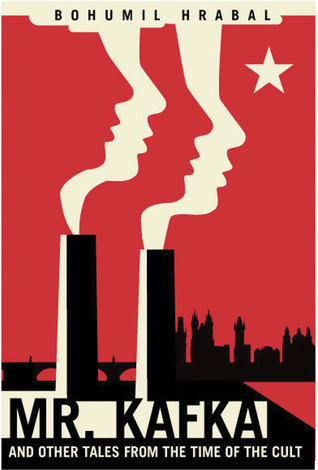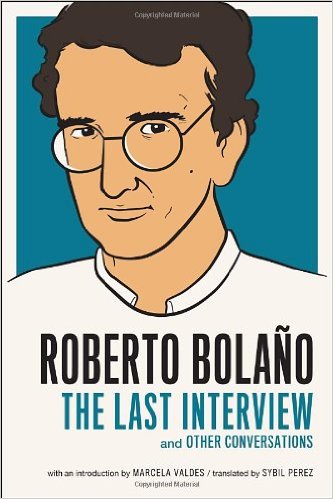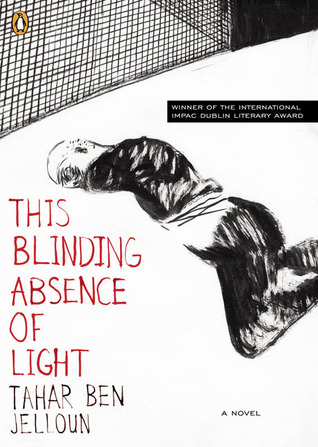 I was thrilled to receive an advance review copy of this novel because Spanish author David Trueba is one of my favorite contemporary storytellers. I had been patiently awaiting another novel from Trueba since his brilliant ‘Learning To Lose’ (the only other novel available in English translation via Other Press) so when word came that his latest novel ‘Blitz’ would soon be published in English translation, I couldn’t wait to read it. Thanks to the kind folks at Other Press, I didn’t have to wait long.
I was thrilled to receive an advance review copy of this novel because Spanish author David Trueba is one of my favorite contemporary storytellers. I had been patiently awaiting another novel from Trueba since his brilliant ‘Learning To Lose’ (the only other novel available in English translation via Other Press) so when word came that his latest novel ‘Blitz’ would soon be published in English translation, I couldn’t wait to read it. Thanks to the kind folks at Other Press, I didn’t have to wait long.
Trueba has a natural gift for storytelling. Not only through his novels but through his films. He is also a well respected screenwriter and director in his native Spain and his gift for storytelling is clearly evident in the amazing ‘Madrid 1987’ and the more recent ‘Living Is Easy With Eyes Closed’. He brings the same gifts to his fiction and with ‘Blitz’ he again hits the bullseye.
The story is set in the recent past, during Spain’s near crippling economic crisis. Thirty year old landscape architect Beto is in Munich with his girlfriend to attend a landscape planning competition when he receives a text message that wasn’t meant for him from his girlfriend. It’s meant for her ex-boyfriend, who she planned on going back to and suddenly breaks off her relationship with the stunned Beto. Stunned by the announcement, Beto is left bewildered, lost and naturally it puts a crimp in his plans and a damper on the entire trip, leading to an unfortunate event which may or may not have effected the judge’s decision about his work. When it comes time to leave Munich for Madrid, he decides not to return with his now ex-girlfriend and spends time alone, wandering around the snowy German city without plans or direction.
When the competition’s translator Helga discovers him alone and weeping on the street, she invites him to stay with her at her apartment until he can rebook his flight home. Helga is a much older woman, thirty-two years his senior. When the two return to her apartment and converse over drinks, Beto finds himself curiously attracted to her. One thing leads to another and soon the two have a sexual encounter which only opens the door to more problems for the depressed and confused Beto.
The bulk of this short novel is the dynamic between Beto and the much older Helga and how they learn to come to grips with their encounter. Helga had been divorced for fifteen years and is not looking for anything ‘serious’. Beto, meanwhile, struggles with a whole range of emotions — guilt, lust, disgust, and confusion. While he does not immediately bolt after the encounter, he certainly doesn’t want to stick around for the encounter’s awkward aftermath. However, despite him obsessing on his ex, he can’t stop thinking about Helga either.
It’s a cross generational encounter which lays naked the mind of a young man with his first sexual encounter with a much older woman. The reader is privy to his every thought, every feeling as the sexual encounter takes place. Beto’s thoughts are a study of the sometimes narcissistic tendencies men have and the assumptions they make regarding women in general but with older women in particular. Whatever occurred between them that night, a certain intimacy is developed, one which the young Beto can’t shake despite his bitterness towards his ex leaving him.
Two days later, Beto returns to Spain and tries to get his life in order and throughout all his efforts to forget his ex, his jealousy over her new lover, Helga lingers, is always present in some way.
Simultaneously tragic and comical, Trueba crafts a wonderful story about intimacy — or lack thereof — in contemporary times and how people are unwilling to let their guard down, to expose themselves fully and surrender to it, no matter who it’s with. The other characters who appear throughout the story echo Beto’s unwillingness to embrace intimacy and coupled with the uncertain times in contemporary Spain, it only enhances the disillusion of this younger generation trying to come to grips with trying times.
At it’s heart, ‘Blitz’ is a story about intimacy the mysteries of sexual desire. An offbeat ‘love story’ if there ever was one and Trueba is a writer that can easily craft one, all the while aiming for the heart.
Translated by John Cullen
 Of course I’d been familiar with Arthur Miller’s plays for years, as well as his brilliant novel ‘Focus’ (which I’m sure will be rediscovered considering today’s political climate). However, I wasn’t aware of how many short stories the playwright had written over the course of his long career, so finding this book was a treat.
Of course I’d been familiar with Arthur Miller’s plays for years, as well as his brilliant novel ‘Focus’ (which I’m sure will be rediscovered considering today’s political climate). However, I wasn’t aware of how many short stories the playwright had written over the course of his long career, so finding this book was a treat.  1
1

 My first foray into the fictional world of Czech author Bohumil Hrabal. A contemporary of fellow Czech author Milan Kundera, Hrabal’s approach is quite different although the satirical elements and surrealist influence are present in Hrabal’s work as much as it’s in Kundera’s. However, the two authors couldn’t be more different stylistically.
My first foray into the fictional world of Czech author Bohumil Hrabal. A contemporary of fellow Czech author Milan Kundera, Hrabal’s approach is quite different although the satirical elements and surrealist influence are present in Hrabal’s work as much as it’s in Kundera’s. However, the two authors couldn’t be more different stylistically.  2
2
 A writer from Uruguay who had more influence on later major writers (Julio Cortazar, Italo Calvino, and Gabriel Garcia Marquez, to name a few) than his own commercial success, which is a shame because Filisberto Hernandez was a brilliant writer.
A writer from Uruguay who had more influence on later major writers (Julio Cortazar, Italo Calvino, and Gabriel Garcia Marquez, to name a few) than his own commercial success, which is a shame because Filisberto Hernandez was a brilliant writer.  Tochtli is the son of a Mexican drug lord living in a mansion in rural Mexico. To the young Tochtli, it is not a mansion but a ‘palace’, where he spends his days being home schooled and playing with his X-box and watching television on his free time. So cut off from the rest of the world, he, like many children his age, retreats into the world of fantasy.
Tochtli is the son of a Mexican drug lord living in a mansion in rural Mexico. To the young Tochtli, it is not a mansion but a ‘palace’, where he spends his days being home schooled and playing with his X-box and watching television on his free time. So cut off from the rest of the world, he, like many children his age, retreats into the world of fantasy.  A collection of interviews with the celebrated Latin American author.
A collection of interviews with the celebrated Latin American author.  Loosely based on the life of mathematician Alexander Grothendieck, Carlos Fonesca weaves a Bolaño/Borges/Calvino-esque tale which is both dense and surreal. This is not to say Fonseca doesn’t have his own voice. He clearly does and it’s quite unique.
Loosely based on the life of mathematician Alexander Grothendieck, Carlos Fonesca weaves a Bolaño/Borges/Calvino-esque tale which is both dense and surreal. This is not to say Fonseca doesn’t have his own voice. He clearly does and it’s quite unique.  A very short novel, in 33 chapters, written by the grandson of Che Guevara, who tragically died at the age of 40. This is a highly critical look at Cuban society, following the life of a Cuban bureaucrat as he takes life one day at a time with a sense of hopeless repetitiveness.
A very short novel, in 33 chapters, written by the grandson of Che Guevara, who tragically died at the age of 40. This is a highly critical look at Cuban society, following the life of a Cuban bureaucrat as he takes life one day at a time with a sense of hopeless repetitiveness.  The life of Isabelle Eberhardt is one to delve into. The illegitimate daughter of a Russian nihilist who dressed her as a man and forbade her contact with society, she eventually traveled to North Africa in 1897 at the age of twenty. There she got involved with a sufi sect, converted to Islam and wrote. The short stories in this collection are only a small sampling of what she had to offer the world.
The life of Isabelle Eberhardt is one to delve into. The illegitimate daughter of a Russian nihilist who dressed her as a man and forbade her contact with society, she eventually traveled to North Africa in 1897 at the age of twenty. There she got involved with a sufi sect, converted to Islam and wrote. The short stories in this collection are only a small sampling of what she had to offer the world.  How this Argentine writer escaped the English speaking world for so long is a mystery to me. ‘Caterva’ (meaning ‘Horde’ or Rabble’) is a highly dense, playful, comedic novel which follows a rag tag group of would-be revolutionaries throughout the Argentine countryside looking to spark a worker’s revolution.
How this Argentine writer escaped the English speaking world for so long is a mystery to me. ‘Caterva’ (meaning ‘Horde’ or Rabble’) is a highly dense, playful, comedic novel which follows a rag tag group of would-be revolutionaries throughout the Argentine countryside looking to spark a worker’s revolution.  This is a second edition of an older publication. The first edition came out a number of years ago via City Lights. The older edition, inexplicably, was a highly truncated version of Cortazar’s 1984 original, the last of his publications in his lifetime. It is a collection of his poems, written throughout the course of his life, along with some prose pieces.
This is a second edition of an older publication. The first edition came out a number of years ago via City Lights. The older edition, inexplicably, was a highly truncated version of Cortazar’s 1984 original, the last of his publications in his lifetime. It is a collection of his poems, written throughout the course of his life, along with some prose pieces.  I was thrilled to receive an advance review copy of this novel because Spanish author David Trueba is one of my favorite contemporary storytellers. I had been patiently awaiting another novel from Trueba since his brilliant ‘Learning To Lose’ (the only other novel available in English translation via Other Press) so when word came that his latest novel ‘Blitz’ would soon be published in English translation, I couldn’t wait to read it. Thanks to the kind folks at Other Press, I didn’t have to wait long.
I was thrilled to receive an advance review copy of this novel because Spanish author David Trueba is one of my favorite contemporary storytellers. I had been patiently awaiting another novel from Trueba since his brilliant ‘Learning To Lose’ (the only other novel available in English translation via Other Press) so when word came that his latest novel ‘Blitz’ would soon be published in English translation, I couldn’t wait to read it. Thanks to the kind folks at Other Press, I didn’t have to wait long.  A series of 78 ‘flash fiction’ pieces but they can also read like highly lyrical prose poetry. It’s hard to pin down whether it’s either/or but this is an irrelevant detail. The writing here is simply amazing and that’s all that matters. What matters more is what these pieces have to say to the reader.
A series of 78 ‘flash fiction’ pieces but they can also read like highly lyrical prose poetry. It’s hard to pin down whether it’s either/or but this is an irrelevant detail. The writing here is simply amazing and that’s all that matters. What matters more is what these pieces have to say to the reader.  Based on an actual account of a survivor of a Moroccan desert concentration camp in the 1970s where King Hasan II held his political enemies. Tahar Ben Jelloun presents a harrowing story of survival in the worst possible conditions. This is not an easy read. In fact, it’s quite disturbing, but that’s the whole point. Not only is the novel an attempt to shine a light on what happened then but to also illustrate the depraved depths man is willing to delve in order to punish his fellow human beings.
Based on an actual account of a survivor of a Moroccan desert concentration camp in the 1970s where King Hasan II held his political enemies. Tahar Ben Jelloun presents a harrowing story of survival in the worst possible conditions. This is not an easy read. In fact, it’s quite disturbing, but that’s the whole point. Not only is the novel an attempt to shine a light on what happened then but to also illustrate the depraved depths man is willing to delve in order to punish his fellow human beings.  This is a novel with an ingenious premise. Those of you who have read Albert Camus’ classic novel ‘The Stranger’ will know the story revolves around a man named Meursault who one day murders an Arab man on the beach in Algiers. The reader never knows the name of the victim, doesn’t know anything about him at all, in fact. He is a nameless, faceless victim of unspeakable violence.
This is a novel with an ingenious premise. Those of you who have read Albert Camus’ classic novel ‘The Stranger’ will know the story revolves around a man named Meursault who one day murders an Arab man on the beach in Algiers. The reader never knows the name of the victim, doesn’t know anything about him at all, in fact. He is a nameless, faceless victim of unspeakable violence.  This was a tough novel to read. My father had passed away from cancer over twenty years ago yet the loss remains with me as if it happened yesterday. An exploration into mortality and grief, Paolo Giordano has again written a very thought provoking novel.
This was a tough novel to read. My father had passed away from cancer over twenty years ago yet the loss remains with me as if it happened yesterday. An exploration into mortality and grief, Paolo Giordano has again written a very thought provoking novel.  A short novel full of rich prose and symbolism and yet another example of the fantastic literature being produced by Italian authors over the past decade or so. “Distant Light” is a hard novel to describe — surreal, dense, probing — it’s the kind of novel that will keep you thinking about it long after you read it.
A short novel full of rich prose and symbolism and yet another example of the fantastic literature being produced by Italian authors over the past decade or so. “Distant Light” is a hard novel to describe — surreal, dense, probing — it’s the kind of novel that will keep you thinking about it long after you read it. 

